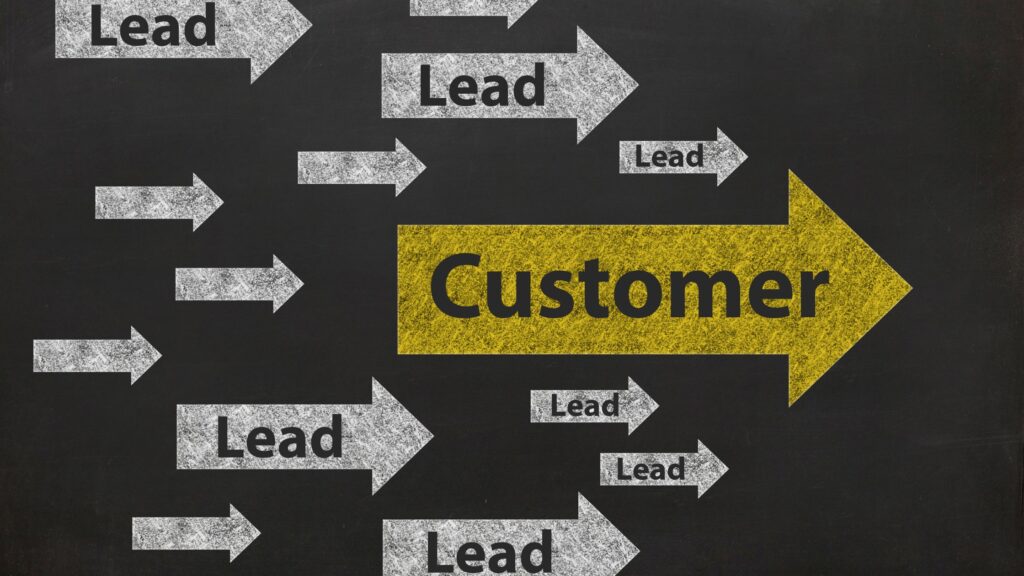
LinkedIn has evolved far beyond a digital résumé platform. Today, it stands as the most powerful B2B social network for professionals and companies seeking real business connections. If you’re looking to reach decision-makers, build authority, and grow your sales pipeline, a well-crafted LinkedIn lead generation campaign is essential.
However, simply connecting with people won’t get the job done. You need a strategy that aligns with your audience’s mindset and behavior. In this guide, you’ll discover what makes LinkedIn so effective, how to create a campaign that delivers results, and which missteps to avoid.

Table of Contents
ToggleWhy LinkedIn for Lead Generation?
LinkedIn’s business-oriented environment makes it perfect for engaging with decision-makers and B2B buyers. Unlike other platforms, its users are not looking for entertainment—they’re searching for solutions, partnerships, and opportunities.
1) A Professional User Base
LinkedIn users include CEOs, marketing directors, HR leaders, and procurement managers. Over 75% of B2B buyers use LinkedIn when making purchasing decisions. This makes the platform ideal for generating leads that are both relevant and high-value.
2) High Targeting Precision
Using LinkedIn’s comprehensive targeting options, you can categorize your audience based on:
- Job title and function
- Company size and industry
- Location and seniority level
Such granularity ensures that your LinkedIn lead generation campaign connects with the right people at the right time.
Key Components of a Successful Campaign
For your campaign to succeed, it must contain certain foundational elements. Without them, even the best message will fall flat.
1. Clear Audience Targeting
Start by identifying who you want to reach. Define your ideal customer profile (ICP) and use LinkedIn’s search tools or Sales Navigator to build your list. The more specific your targeting, the higher your chances of engagement.
2. Profile Optimization
Your profile acts as a landing page for your leads, and that’s why if it looks incomplete or overly self-centered, you’ll lose credibility. Instead:
- Use a high-quality, professional photo.
- Write a headline that highlights your solution, not just your title.
- Add a summary that speaks directly to your audience’s pain points.
3. Personalized Messaging
Avoid copy-paste scripts. Prospects respond better to authentic, personalized messages. When writing:
- Mention something you have in common (e.g., mutual groups or interests).
- Be brief and respectful of their time.
- Avoid pitching in the first interaction.
4. Value-Driven Content Strategy
Your content should educate, inform, or inspire. Posting consistently helps you build authority while keeping your network engaged. Try:
- Thought leadership posts
- Case studies or success stories
- Relevant tips or industry updates
Consistent, value-based content builds trust over time.

Step-by-Step Guide to Launch Your Campaign
Follow this structured approach to launch a LinkedIn campaign that drives actual results:
Step 1: Define Your Campaign Goal
Every campaign should start with a specific objective. Whether your target is to schedule discovery calls, secure sign-ups for a webinar, or promote a lead magnet, your goal will shape all your messaging and follow-up efforts.
Step 2: Create a High-Quality Lead List
Use LinkedIn’s search features or Sales Navigator to compile a list of ideal contacts. Focus on companies and individuals who match your ICP.
Step 3: Craft Personalized Connection Requests
Your first message should be short, friendly, and relevant. Avoid selling at this stage. Instead, establish a reason for connecting.
Example:
“Hi [Name], I came across your profile while researching [industry/topic]. I’d love to connect and exchange insights.”
Step 4: Develop a Thoughtful Follow-Up Sequence
After your connection request is accepted, don’t pitch immediately. Instead:
- Share a helpful resource (e.g., a blog, ebook, or case study).
- Ask a non-invasive question related to their work.
- Offer value before asking for time or attention.
Aim to build a relationship first—sales come naturally when trust is established.
Step 5: Track Performance and Iterate
Use LinkedIn analytics or third-party CRM tools to monitor:
- Connection acceptance rate
- Message response rate
- Lead conversion rate
Adjust your messaging and targeting based on what works best.
Mistakes to Avoid During Execution
Even the best intentions can lead to weak results if you overlook key pitfalls.
1. Relying Too Much on Automation
Automation can save time, but it also risks making your outreach feel robotic. Always review and personalize your messages.
2. Pitching Too Soon
Selling too early pushes people away. Focus on relationship-building first.
3. Ignoring Your Profile’s Role
Your profile must support your campaign. If it’s outdated or self-focused, it can kill your chances before you start.
4. Inconsistent Follow-Up
Many leads convert after several interactions. A lack of follow-up means missed opportunities. Keep your sequences consistent but non-intrusive.

Conclusion
Running a successful LinkedIn lead generation campaign is not about sending thousands of messages. It’s about making meaningful connections with the right people and building long-term relationships. With the right profile, personalized messages, and value-led content, your brand can stand out and convert leads effectively.
If you’re ready to level up your LinkedIn strategy, MobileRad offers tailored B2B lead generation services that help businesses like yours turn conversations into clients.
Frequently Asked Questions (FAQs)
1. What is a LinkedIn lead generation campaign?
A LinkedIn lead generation campaign is a structured outreach strategy designed to attract and engage potential business leads using personalized messaging and professional networking.
2. How long does it take for a LinkedIn campaign to generate results?
You may see initial engagement within days, but most leads require 3–6 weeks of consistent interaction to convert.
3. Should I use LinkedIn ads or organic outreach?
Both work well. Organic outreach is cost-effective and personalized, while ads help scale and automate your reach.
4. Can I run a LinkedIn lead generation campaign without Sales Navigator?
Yes, but Sales Navigator provides more advanced targeting, insights, and tracking capabilities that can boost campaign performance.